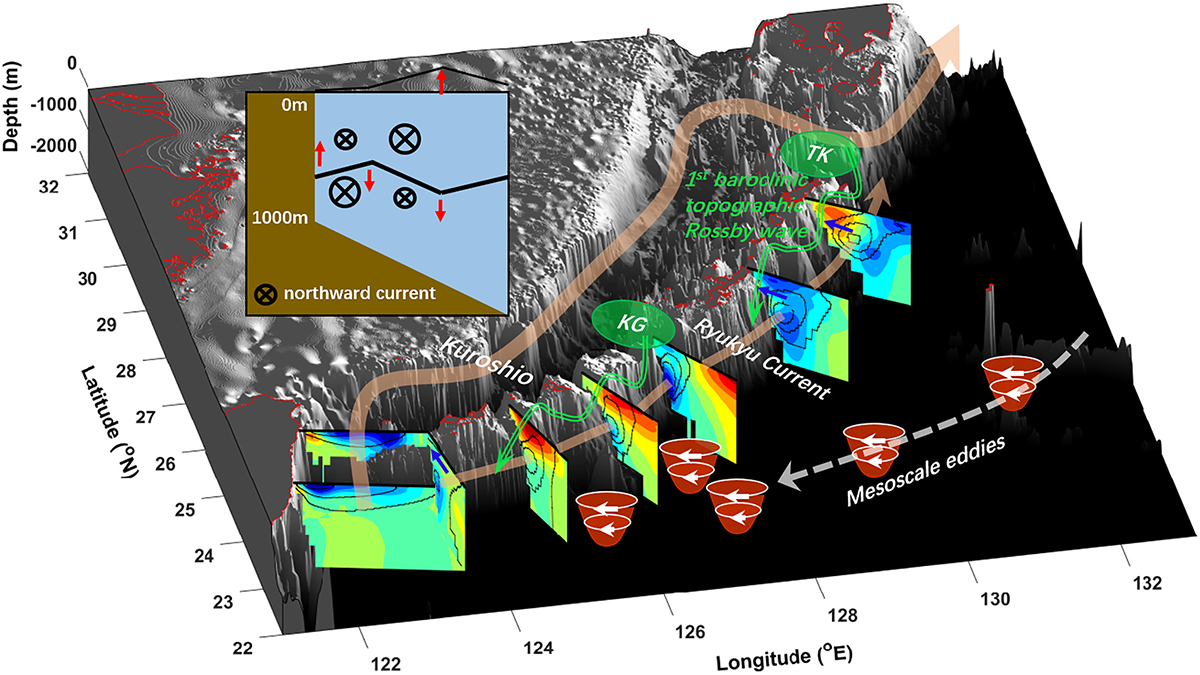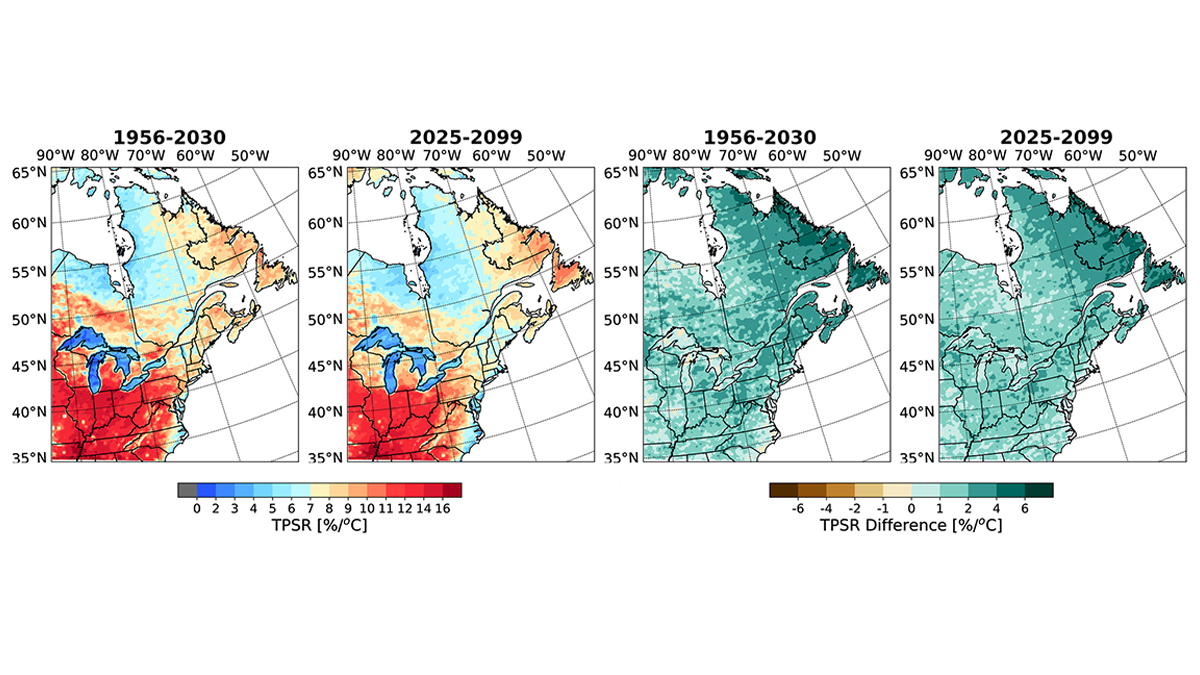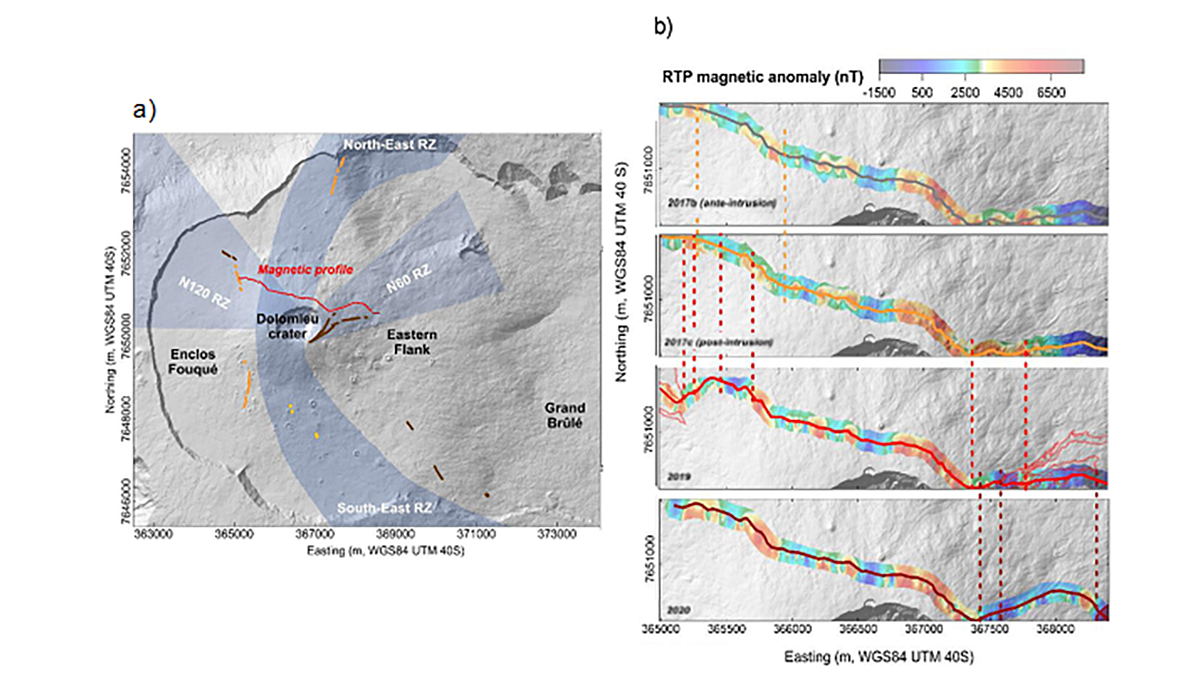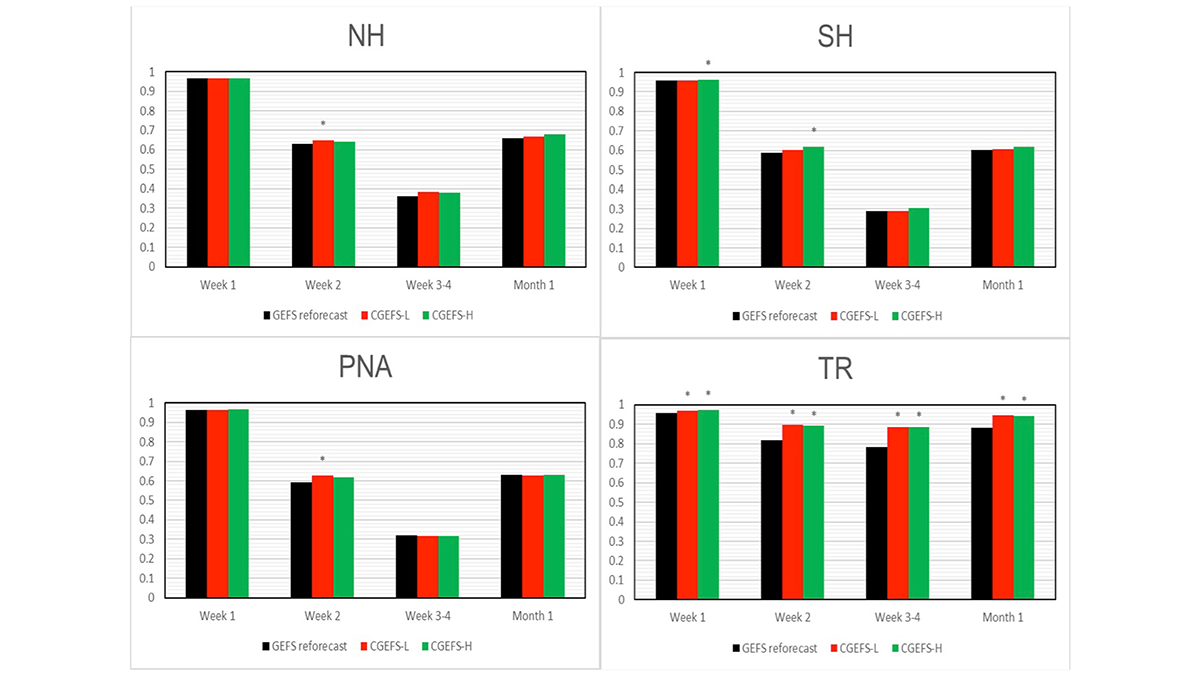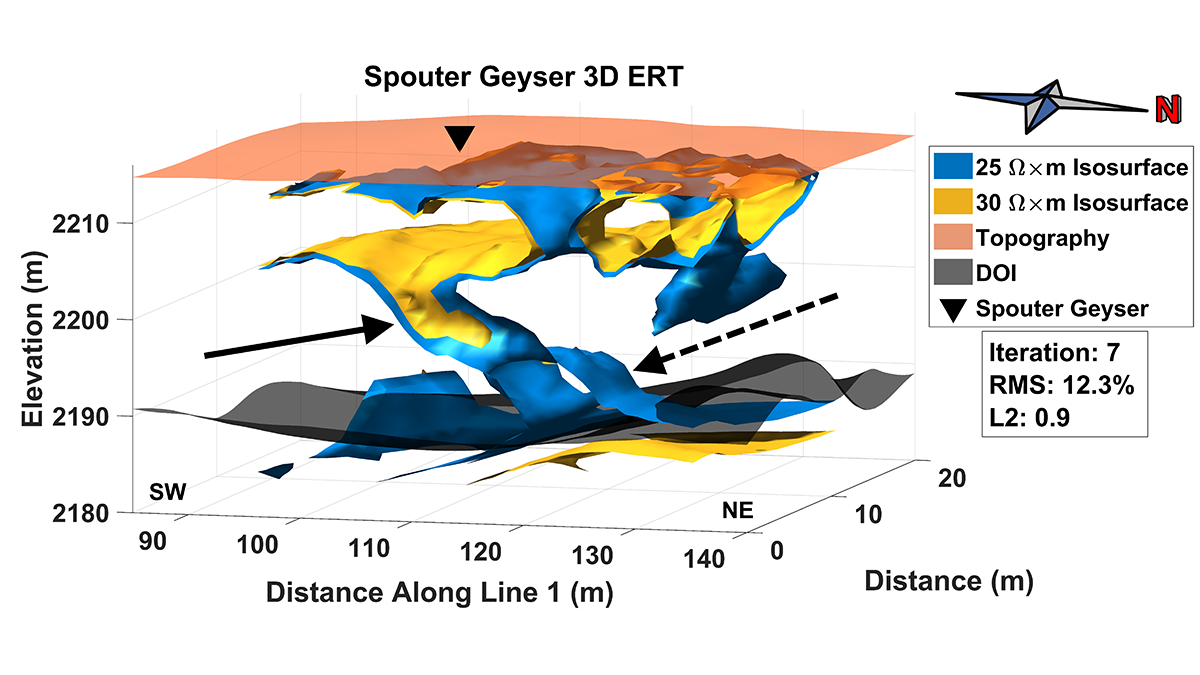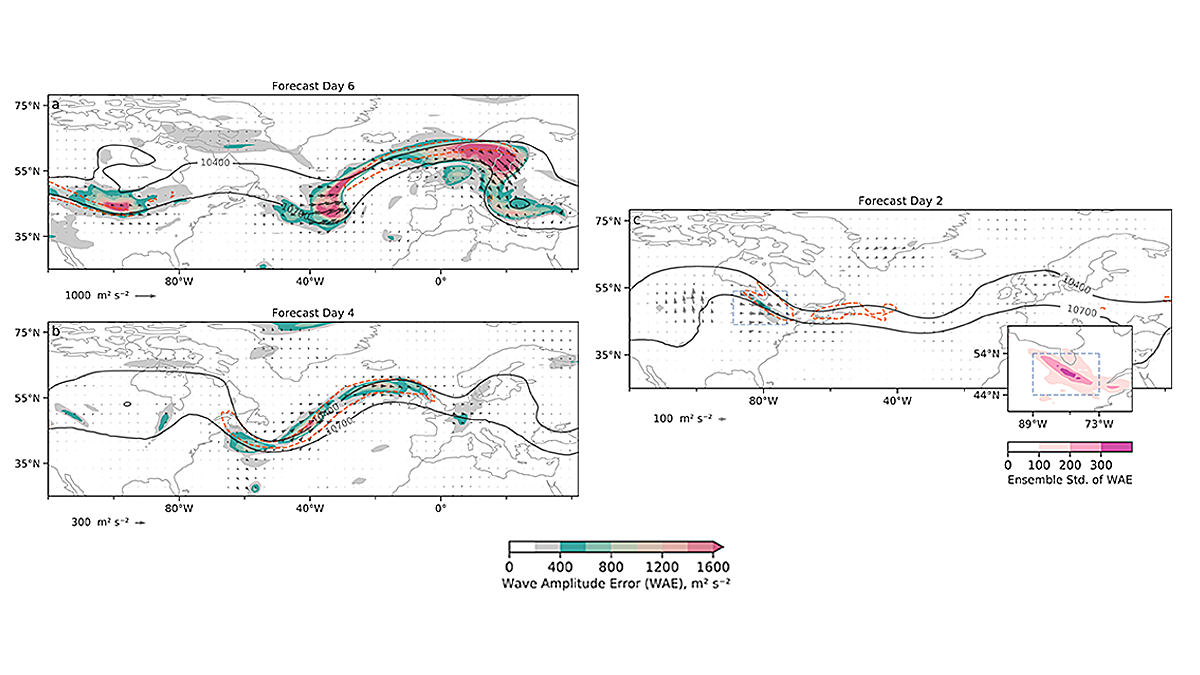A framework is proposed for urban forest management to mitigate heat exposure, lessen drought issues, and conserve water use for urban heat mitigation and resilience in environmentally stressed cities.
Editors’ Highlights
Landfall Temperature of Atmospheric Rivers on the US West Coast
Atmospheric rivers that start in warm areas of the North Pacific generally stay warm, leading to warmer landfall temperatures in the western United States.
Weakened Kuroshio Slows Down the Ryukyu Current
A combination of the weakened Kuroshio in the Tokara Strait and an increase in anticyclonic eddies led to the slowdown of the Ryukyu Current from 1993 to 2018.
Rate of Temperature–Precipitation Scaling in Rainfall Events
Future extreme rain will be embedded in shorter, more convective dominant rainfall events in the northeastern region of North America, leading to larger rate in future temperature-precipitation scaling.
Rapid Evolution of Volcanic Systems Reflected in Magnetics
Spatiotemporal magnetic monitoring along with InSAR models is a powerful tool to image magmatic, hydrothermal, and mechanical changes within the volcanic edifice of the Piton de la Fournaise.
A New Coupled Modeling System Improves Forecast Skills
Building on older versions, the new Global Ensemble Forecast System with coupled atmosphere-land-ocean-ice-wave models has better forecasting skills of the atmosphere than the uncoupled system.
Yellowstone Geyser is Diagnosed with Bubble Trap Syndrome
Like humans who eat too many beans, Yellowstone’s Sprouter Geyser has recurrent issues with gas.
Mesoscale Convective Systems Impact Synoptic Wave Forecast
Scientists provide a process-level understanding of how mesoscale convective systems modify the evolution of the large-scale Rossby wave packet downstream and the jet stream.
What Surprises do the Icy Uranian Moons Hold?
With efforts ramping up to send a spacecraft back to the Uranian system, anticipation is increasing as to what geological surprises are hiding inside and on the surfaces of the icy Uranian moons.
Dust on Mars? The Answer, My Friend, is Blowin’ in the Wind
The first flights of a helicopter on another planet are used to study dust lifting and mobilization in Jezero Crater, Mars.



